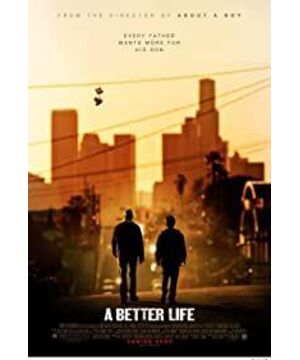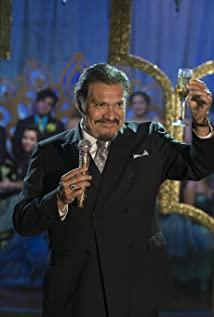For film creators, it is very easy to get emotional points by telling the stories of ordinary people. It is said that every family has a hard-to-recite sutra, so who doesn't wonder what sutras the neighbors will recite when they close their doors? And I guess I'm mostly concerned with comforting "stories" that make me feel irrelevant and lucky—tragic, unbearable, secret. Of course, there are also some who are looking for resonance.
It's about life in life. A long time ago, a "Uncle Red" asked me to read Yu Hua. Before I knew about "Alive", I also knew about Xu Sanguan, who sold blood to live, so I found his most recent book called "Brothers" and opened it at that time. On the first page, I was captured by "curiosity". In my ears, there are echoes of people who have experienced all kinds of seniors. They said that there must be one or two men in small villages who like to pick toilets and play hooligans. Li bald head caught my eye and immediately won my favor. This character is too vivid. Also, I was curious about how he could be exactly like his father, and he also had a habit of hiding in public toilets to watch women go to the toilet. This kind of curiosity made me struggle for a few days, and finally found out the secrets of bald head Li's house. Using the "rogues" in life to describe the characters and story content, I have to admit that it was ignorant and bold when I didn't understand the other family members of bald head Li, and it definitely misunderstood "Brothers". A hundred and eight thousand miles away. What stings ignorance is the truth carved out by time, the background of the times, the social atmosphere, and the living environment. These are the culprits of the comic tragedy.
I remember the news that my mother had an unfamiliar friend who has now been lost. Years ago, she often came to my house to play. She liked to tell her own stories, how her daughter and son-in-law made a fortune in the United Arab Emirates. Occasionally, another beautiful woman was present, and this beautiful woman must also interject a few words, saying Talking about how she made a name for herself in Russia when she was young, she bought and sold in the wholesale market. They were talking, often silent for a long time, and occasionally tears would stop in their squinted eyes, and bystanders just thought they were crying with joy. Gradually, they will also be mixed with reality and reality, and they will tell stories that they don't want to look back on as someone else's experience. In fact, we all know what kind of despair is behind the hope of leaving one's hometown in search of life. Yes, the despair of being abandoned by one's hometown should not be something that can be written off after returning home and can pretend not to exist. This is also why I don't like "The Good Life" very much. It only magnifies the suffering in a foreign country. In this way, it disguisely weakens the guilt of creating rich and poor and creating difficulties in the homeland where the protagonist should live happily. Perhaps I overinterpreted the director's intentions to make this film, which is why I'm complicating an all-too-common real-life story about Mexicans smuggling into the United States to make a living. Even so, I like my own sensibilities, and that feeling allows me to see a lot of great things in this mediocre film. In short, in a movie, what is full of grief is often not those healable flesh and blood injuries. We can quietly watch the reality of father and son gnawing at their heads, but we cannot bear the cruelty of the separation of father and son. The sad thing is not that you left your homeland to live in a foreign land, but that your homeland abandoned you, and you had to live in a foreign land... The reason why this drama is called mediocre is because the whole drama ignores the theme of the story in the smooth structure. Chris Weitz's idea is very clear, but relying on the Italian neo-realist film style "A Wonderful Life", it has always lacked the strength of the reality rendered by Desica, and the cruel atmosphere of the society is too soft, showing the flocking to Sam The reason for the uncle's embrace is not objective enough. Maybe this is the United States, not Italy. Carlos and his son stole their own "car", not the "bicycle" of Antonio and his son, so the consistent American fast food culture, combined with the original Mexican ingredients, can still be smelled under the cover of art It's dry. This may also be the reason why the film can move people, but does not leave a lasting imprint. In addition, this movie naturally has its brilliance. For example, it makes people feel that there is an atmosphere of "tragedy" coming at any time, Chris. Weez builds very full. There is always a trace of unease in my heart, and the omens of "the house leaks and it rains overnight" hovering in my mind. I am afraid that Carlos will lose his job and cannot even live in the slums. Returning to China, etc., it is not difficult to feel that the film has successfully shaped the reality that the "third-class" in society strives to survive. From this, you can also feel the cruelty and horror of Mexican gang politics when it destroys its citizens on American soil. There are also several small orgasms, large and small, which can really wake up the free nerves of the viewer. The old man did a good job of breaking bread for Carlos before stealing the car. This way of portraying the good and evil of human nature has been tried and tested. When showing the generation gap between Carlos and his son, the conflicts in various words and events vividly highlight the pure and honest characteristics of Carlos and his son. In other words, such people should be welcomed by any country, they should be representatives of good citizens, and ironically, they are deported stowaways. They are not U.S. citizens, and it is certainly understandable to be expelled. However, discussing this topic is probably not that simple, so I put it on hold. Speaking of which, if the whole play has a profound implication in my imagination, it may be revealed in the last line-Let's go home. That's what the protagonist, Carlos, said when he and the other smugglers headed north to the United States again after being deported back to Mexico. This sentence is really thought-provoking. I don't know if this simple sentence is a pun in the minds of the director and the screenwriter. Perhaps, some people will think of the history of large-scale territorial expansion of the United States in the 19th century. At that time, President James Monroe called out the colonial ambition of "America is the America of the Americans", and then, the Mexican-American War, the Mexican authorities made low prices (equivalent to hand in hand) The sale of the country created the reality that later generations said the United States had annexed half of Mexico's territory. However, for me personally, I prefer to compare the phrase "going home" to "going back to the land of freedom", returning to "the place where you can live with human dignity" - America, a place that belongs to anyone who loves freedom country of immigration. Having said so much, it is always necessary to detour to heavy political issues. Therefore, it is natural not to be arrogant in life films, and for the film's own interests, it is best to let the clouds pass by inadvertently. In other words, life is just like that! What is the husband for? Habitat generation also. Perhaps Carlos could answer that his whole life was in his son. The dialogue between the father and son at the end interprets the most sincere emotions, although there is a suspicion of serious sensationalism, it is a bit tasteless. However, this is the teaching of the elders to the younger generation, and the little protagonists in the future still need to work harder, because the revolution has not yet succeeded, and you still have to carry the descendants of mankind on your shoulders. In short, don't ask our parents who love us - "Why give birth to me if they can't give me anything, mainly because they can't satisfy me materially?" Exhausted love, and a pair of white shoes that can travel thousands of miles. (Remember in a documentary about the Israeli-Palestinian war, a child said he wanted to have a pair of white shoes and be able to walk freely and safely.)
View more about A Better Life reviews











